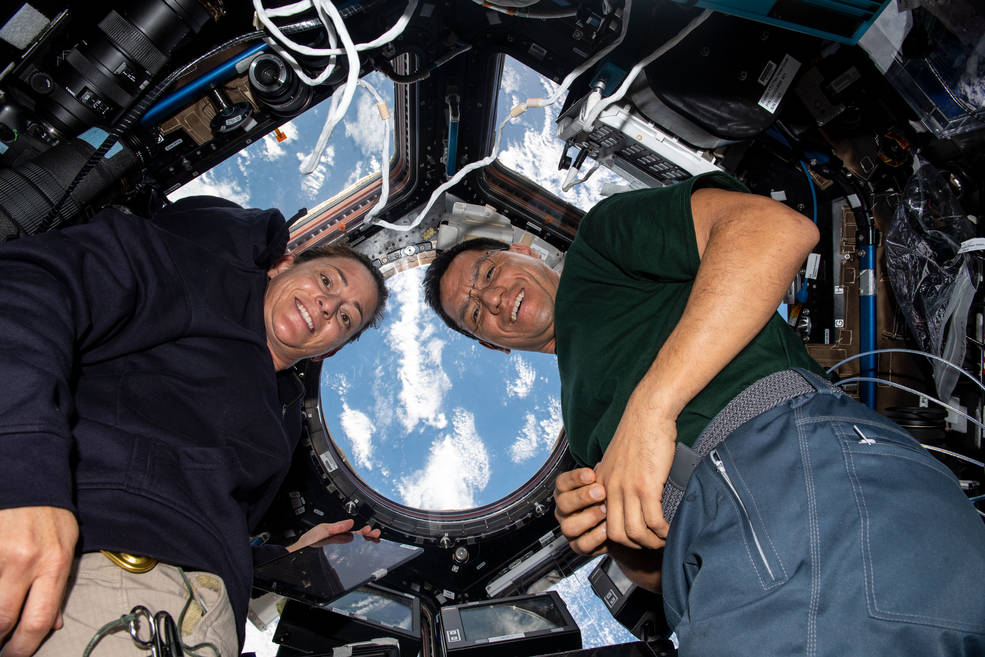Maryland, Oklahoma Students to Hear from Space Station Astronauts

Students from Maryland and Oklahoma will have the opportunity next week to hear from astronauts aboard the International Space Station.

The two space-to-Earth calls will air live on NASA Television, the NASA app, and the agency’s website.
NASA astronauts Nicole Mann and Frank Rubio will answer prerecorded questions from health science students at the Uniformed Services University of the Health Sciences (USUHS) in Bethesda, Maryland, as well as students from Washington Episcopal and Washington School for Girls, both in Washington, at 12:25 p.m. EST, Monday, Nov. 21. Rubio received his doctorate in medicine from USUHS in 2010.
The downlink will give the university community and students a firsthand look at what scientists, physicians, and educators do in space and inspire the next generation of students to pursue STEM careers.
Mann will answer prerecorded questions from students at Osage Nation School in Pawhuska, Oklahoma, at 11:30 a.m. Wednesday, Nov. 23. The downlink is part of a series of activities and events designed to educate, inspire, and empower young Native Americans to engage in NASA missions. The school’s goal is to overcome the underrepresentation of Native Americans enrolled in STEM schools and in the STEM workforce. Mann is the first indigenous woman from NASA to live and work aboard the space station.
Media interested in covering the event should contact Abigail Mashunkashey at: amashunkashey@osagenation-nsn.gov or 918-287-9751.
For more than 22 years, astronauts have continuously lived and worked aboard the space station, testing technologies, performing science, and developing the skills needed to explore farther from Earth. Astronauts living in space on the orbiting laboratory communicate with NASA’s Mission Control Center in Houston 24 hours a day through the Near Space Network Tracking and Data Relay Satellites (TDRS).
As part of Artemis, NASA will send astronauts to the Moon to prepare for future human exploration of Mars. Inspiring the next generation of explorers – the Artemis Generation – ensures America will continue to lead in space exploration and discovery.
See videos and lesson plans highlighting research on the International Space Station at:





